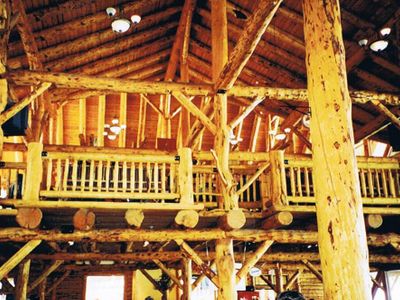In the course general demands are described on building materials Chemical and physical structure and mechanical characteristics, and a small part about selection of materials and development of new materials. Next moment treats different building materials divided in groups due to the function in the building. Every material group deal with, raw material, manufacturing, chemical and physical structure, material qualities, characteristics, essential material parameters, common applications, durability and service life in different environments. And give an introduction to environmental assessments of building materials, recycling and re-use of building materials.
AF1301 Building Materials, Basic Course 7.5 credits

In the course general demands are described on building materials, chemical, physical and mechanical characteristics. As well as material properties and material combinations from a sustainability and durability perspective. The course also includes a section of future trends in building materials.
Information per course offering
Information for Autumn 2026 Start 24 Aug 2026 programme students
- Course location
KTH Campus
- Duration
- 24 Aug 2026 - 23 Oct 2026
- Periods
Autumn 2026: P1 (7.5 hp)
- Pace of study
50%
- Application code
12243
- Form of study
Normal Daytime
- Language of instruction
Swedish
- Course memo
- Course memo is not published
- Number of places
Min: 1
- Target group
- No information inserted
- Planned modular schedule
- [object Object]
- Schedule
- Schedule is not published
Contact
Course syllabus as PDF
Please note: all information from the Course syllabus is available on this page in an accessible format.
Course syllabus AF1301 (Autumn 2024–)Content and learning outcomes
Course contents
Intended learning outcomes
After the course, for grade E, you should be able to:
Define basic concepts of mechanical and physical characteristics of building materials.
Perform some simple calculations for moisture and heat transport in the building materials.
Perform some simple calculations of moisture movements in materials, and assess the material moisture condition on material properties.
Perform basic strength and deformations calculations for building materials and material combinations, both for instantaneous loads and for long-term loads.
Use plausibility check to assess calculations or assumptions.
Describe the most commonly building materials used in the construction industry and be able to describe its material properties, structural structure and use.
Describe interaction between material and the environment, both the environment's impact on materials and the material impact on the environment.
Describe long-term properties of the construction material, throughout its life cycle.
To use the vocabulary for building materials and material parameters for in a credible way to communicate with specialists.
For higher score, grade D-A, you will also be able to:
Perform more complex calculations for moisture and heat transport in the building materials.
Define complex context and concepts for mechanical and physical characteristics of building materials.
Compare and evaluate different material properties and based on the drag conclusions on material impact on the environment or the environment impact on materials both in the short term and long term properties.
Evaluate information on building materials and to propose appropriate materials selection to complex structures in different environments.
Literature and preparations
Specific prerequisites
AI1527 Introduction to the Planning and Building Process.
At least 4.5 ECTS from AF1002 Buildings and Civil Engineering Structures.
Literature
Examination and completion
Grading scale
Examination
- TEN1 - Examination, 6.0 credits, grading scale: A, B, C, D, E, FX, F
- LAB1 - Laboratory Work, 1.5 credits, grading scale: P, F
Based on recommendation from KTH’s coordinator for disabilities, the examiner will decide how to adapt an examination for students with documented disability.
The examiner may apply another examination format when re-examining individual students.
If the course is discontinued, students may request to be examined during the following two academic years.
Examination (TEN1; 6 cr)
Verbal examination of accomplished laboration
Laboration (LAB1; 1,5 cr)
Other requirements for final grade
Pass moment, TEN1 and LAB1
Examiner
Ethical approach
- All members of a group are responsible for the group's work.
- In any assessment, every student shall honestly disclose any help received and sources used.
- In an oral assessment, every student shall be able to present and answer questions about the entire assignment and solution.